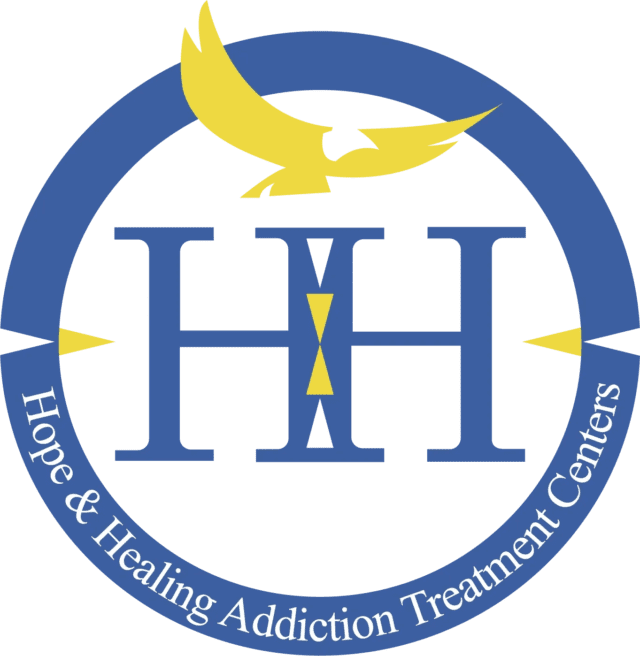Inpatient Trauma Treatment Program in Mesa, AZ
Most people experience at least one traumatic event in their lives. In some, these events can leave lasting emotional and psychological scars that impact their daily functioning. In the most severe cases, post-traumatic stress disorder can develop, causing serious and life-disruptive symptoms. If you’re battling these issues, we offer an inpatient trauma treatment program in Mesa, AZ, to help you.
At Hope and Healing Addiction Treatment, our Mesa trauma residential team provides trauma-informed care to guide you in the process of understanding the trauma you’ve experienced and how to start healing. Learn more about trauma and how our programs can make a difference.

What Is Trauma?
Trauma is an emotional response to a distressing event. One of the most challenging aspects of defining and understanding trauma is that the same event can be more distressing for some individuals than for others. This makes it difficult to diagnose the problem and to address it. Additionally, the symptoms may also not always start right after the event; they could take months or even years to develop.
The severity of trauma symptoms can depend greatly not only on the traumatic event but also on whether there are other mental health concerns present or if the person has been exposed to other traumatic events in the past. Psychological and emotional responses to trauma can include:
- Sadness
- Fear
- Anger
- Anxiety
- Confusion
- Depression
- Concentration problems
- Irritability
There may also be physical responses to trauma, including:
- Headaches
- Racing heart
- Sweating
- Feeling jumpy
- Fatigue
- Digestive issues
If symptoms persist and don’t improve over time, post-traumatic stress disorder (PTSD) can develop. PTSD can severely impact daily life, causing flashbacks, crippling anxiety, and persistent memories of the event. People who have PTSD can also display avoidant behaviors, including not wanting to think or talk about the event and avoiding the location where it occurred.
There are various types of trauma. Acute trauma refers to a single distressing event that someone experiences or witnesses. Chronic trauma, on the other hand, refers to long-lasting and prolonged traumatic events. Chronic trauma can refer to domestic abuse, war, homelessness, and neglect. Complex trauma also exists, which encompasses being exposed to multiple and varied traumas.
How an Inpatient Trauma Treatment Program in Mesa, AZ, Can Help
For people who are struggling with trauma, inpatient care can offer the necessary robust support. At Hope and Healing Addiction Treatment, we provide trauma-informed programs to assist you in managing your symptoms and addressing the distressing event that caused them.
Uncovering the Problem With Individualized Talk Therapy
Individualized talk therapy sessions help to get right to the root cause of the trauma. Our inpatient programs rely on several psychotherapy options, including cognitive-behavioral therapy (CBT).
CBT is considered the gold standard for trauma care because it can help you understand the connection between your thoughts, moods, and actions. By reevaluating thinking patterns, you can identify and address distortions that could be impacting your everyday life.
Another excellent option for people who are struggling with trauma and PTSD is dialectical behavior therapy (DBT). DBT can help you better manage intense emotions along with impulsive behaviors. With DBT, you learn skills in crucial areas, such as mindfulness, distress tolerance, and emotional regulation.
At Hope and Healing Addiction Treatment, we also offer eye movement desensitization and reprocessing (EMDR) therapy for trauma. During these sessions, you briefly relive a traumatic experience in a safe setting while your therapist directs your eye movements. This helps you to integrate and process traumatic memories in a way that doesn't cause as much distress.
Battling Isolation With Group Therapy
It’s common for people who are struggling with trauma to try to isolate themselves. You may feel unsafe in a group and have trouble trusting others. Although it may seem easier to isolate, it’s very harmful to your mental health. It places a lot of stress on you, which may lead to further trauma symptoms.
Our center offers group therapy sessions during inpatient treatment so that you can start learning to communicate with others in healthier ways. During group therapy sessions, you hear about others' experiences while working through trauma. You can also begin building your support system, which can be a huge asset when you leave treatment.
Addressing Trauma Holistically
At Hope and Healing Addiction Treatment, we offer therapies that treat you holistically. We know you’re not just a collection of symptoms, and we understand that barriers may be making the healing process more difficult. By providing holistic options that include inclusive therapy and traditional cultural programs, we can help you get the whole-person care you deserve.
Breaking Free of Trauma at Hope and Healing Addiction Treatment
Having unresolved trauma can leave you struggling to live a happy and fulfilling life. For many, the only way to get relief from debilitating symptoms is to get care at an inpatient treatment center.
At Hope and Healing Addiction Treatment, we provide in-depth residential treatment that can help you make changes to your thought processes and come to terms with the trauma that you experienced. We offer a high level of care to guide you as you break free from the hold trauma has on your life. Contact our team to learn more about the services we offer.
